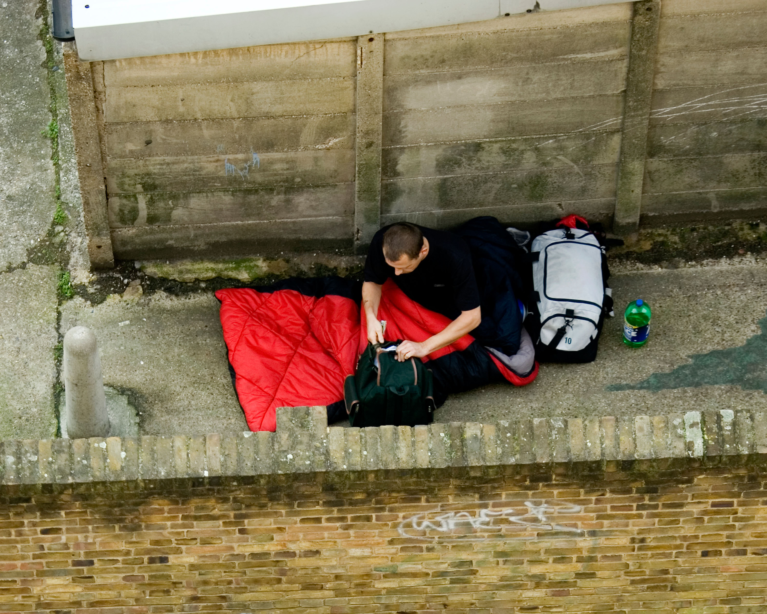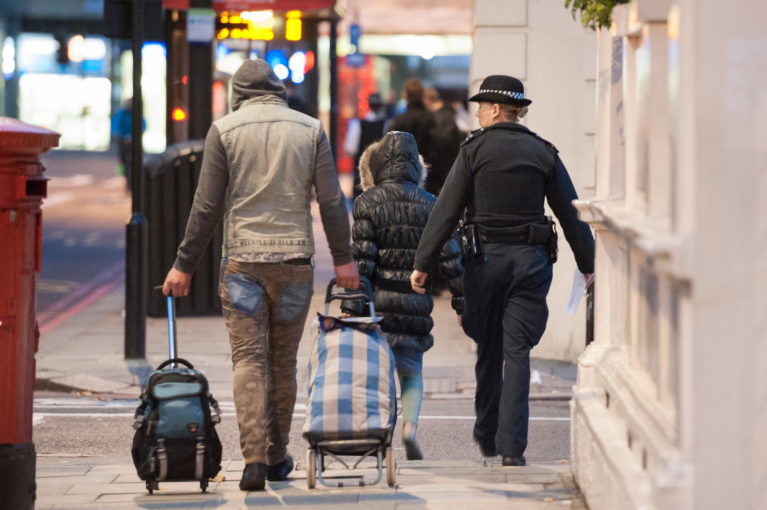Hostile environment data-sharing
A Hostile Environment for the Homeless
Posted by Steve Barnes on 07 Apr 2017
For years, the Government has been extending immigration control into every aspect of UK life, turning teachers, bankers and landlords into border guards in a bid to create a “hostile environment” for migrants.
Steve Barnes of North East London Migrant Action (NELMA) blogs for Liberty on the further expansion of immigration enforcement to homelessness charities to assist the Home Office in ‘disappearing’ rough-sleeping EU migrants.
There was outcry when Theresa May’s Government recently blocked attempts to protect the rights of EU citizens in the UK after Brexit. But the Home Office has been quietly ‘disappearing’ European migrants from the UK for well over a year.
Why has this assault on rights received so little publicity? Possibly because those affected are homeless.
In November 2015, the Home Office piloted a scheme called Operation Adoze. It saw dozens of EU rough sleepers in Westminster detained and removed to their countries of origin – purely on the basis that they were sleeping rough.
The Home Office claimed rough sleeping was an ‘abuse of freedom of movement rights’, a term previously applied to those who had contracted sham marriages or entered the country using forged documents.
Operation Adoze only ran for two months. But it became the blueprint for an assault on the rights of European rough sleepers across London.
Targeting society’s most vulnerable
Under Operation Adoze, 127 rough sleepers were detained and removed in just eight weeks. And that was just the beginning. In May 2016, the detention and removal of European rough sleepers became Home Office policy.
The results of Freedom of Information requests to London councils reveal that scores of immigration raids on rough sleepers have taken place over the last 10 months. In many cases, Home Office immigration enforcement teams are working in partnership with local authorities and homelessness charities.
It is doubtful whether such actions are even lawful. The Home Office has recently amended its guidance to try to shore up the legal basis for the removals.
Lawful or not, deporting rough sleepers just for sleeping rough is an affront to the civil liberties of some of the most vulnerable people in our society.
Toxic agenda
You might wonder how we got here. One way to start the story is with government cuts to housing benefits for EU citizens. This resulted in a loss of benefits for low-earning or unemployed migrants and, consequently, reduced access to affordable accommodation.
Under the new system, even those in work are often unable to afford to rent. The changes to benefits also made it harder for European rough sleepers to get support from homelessness charities, since such support often depends on housing benefits entitlement.
Unsurprisingly, there has been a rise in the number of EU migrants sleeping rough since the cuts – and the Government has responded with enforcement.
In reality, though, the story starts earlier. It was in 2012 that Theresa May first spoke of her wish to create a “really hostile environment” for people living in the UK “illegally”.
A logical extension of this toxic agenda is to create new categories of “illegal” people. European migrants who rough sleep have effectively been criminalised and can be ejected from the UK regardless of whether they are working or have residency rights.
The number of those affected by the hostile environment continues to grow.
Out of sight, out of mind
Detaining and removing rough sleepers does not solve homelessness. It just moves the problem out of sight.
For EU migrants who find themselves sleeping on the streets, another option is “voluntary reconnection”. Homeless charities have been commissioned to undertake this work: between 2009 and early 2016, Thames Reach supported more than 3,000 people to “voluntarily” return to their countries of origin.
But how voluntary is “voluntary reconnection”? An internal report of the Mayor’s Rough Sleeping Group states that “when support is offered, it can be helpful to make clear that, if it is refused, enforcement will be used”.
Anecdotal evidence suggests people held in detention often agree to return “voluntarily” to escape indefinite incarceration. In many instances, so-called “voluntary reconnection” is actually coercive.
Rough sleeping is a social justice issue. EU rough sleepers need rights-based advice, relevant practical support and something entirely absent from current Home Office policy – compassion.
Responding to rough sleeping with enforcement further oppresses an already marginalised group. The money currently spent on enforcement and detention could be channeled into low-cost housing schemes for workers, specialised employment schemes and rehabilitation for those with substance misuse issues. .
The Home Office’s policy of detaining and removing EU migrants for being homeless is a scandal. It must be scrapped.
I'm looking for advice on this
Did you know Liberty offers free human rights legal advice?
What are my rights on this?
Find out more about your rights and how the Human Rights Act protects them
Did you find this content useful?
Help us make our content even better by letting us know whether you found this page useful or not


